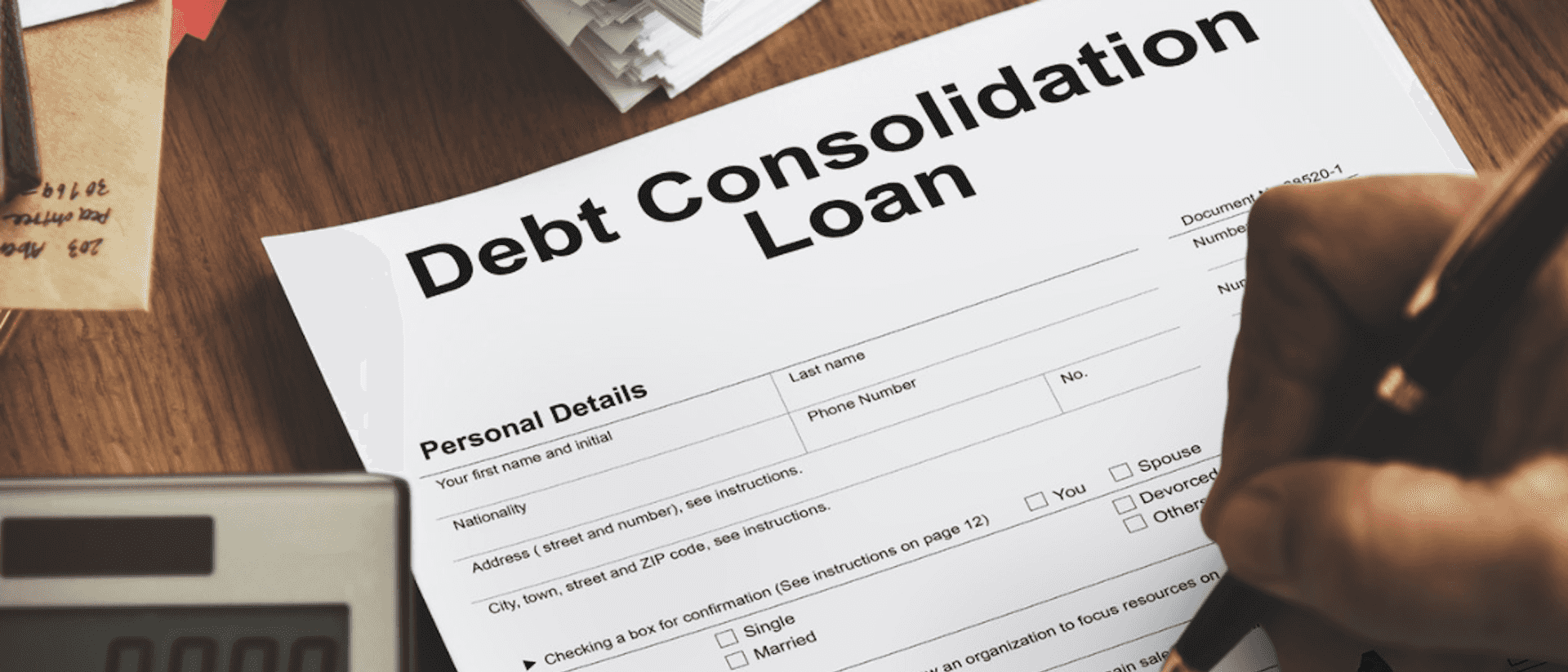Secured Vs. Unsecured Debt Consolidation: What's the Difference?

Introduction
Debt consolidation is a financial strategy that can help individuals regain control over their debt by combining multiple debts into a single, manageable payment. Understanding the key differences between secured and unsecured debt consolidation is essential to make informed decisions about which option is best suited for your financial situation.
Understanding Secured Debt Consolidation
Secured debt consolidation involves using collateral, such as your home equity, vehicle, or savings account, to secure the loan. By offering collateral, lenders have a form of security in case of default. This type of consolidation typically offers lower interest rates, extended repayment terms, and potential tax advantages.
Definition and Characteristics
Secured debt consolidation is a financial arrangement where you use collateral, such as your home equity, vehicle, or savings account, to secure the loan. By offering collateral, lenders have a form of security in case of default. This type of consolidation typically offers lower interest rates, extended repayment terms, and potential tax advantages.
You leverage your assets to obtain a loan when you opt for secured debt consolidation. The collateral you provide serves as a guarantee for the lender, reducing the risk they face. This lower risk translates into lower interest rates compared to unsecured loans.
Benefits of Secured Debt Consolidation

Secured debt consolidation comes with several advantages. Firstly, the lower interest rates can significantly reduce the overall cost of borrowing. By paying less interest, you can save money and potentially pay off your debt sooner. This can have a positive impact on your long-term financial goals.
Secondly, the extended repayment terms offered in secured debt consolidation allow for smaller monthly payments. With reduced monthly obligations, you can better manage your budget and allocate your resources to other financial priorities. This can provide some much-needed relief, especially if you struggle to keep up with multiple debt payments.
Lastly, in certain cases, the interest paid on secured loans, such as a home equity loan, may be tax-deductible. This potential tax advantage can further contribute to your financial savings. It is important to consult with a tax advisor or financial professional to understand the specific tax implications of your situation.
Risks and Considerations
While secured debt consolidation offers benefits, being aware of the associated risks is crucial. One significant risk is the potential collateral loss if you fail to make payments. If you default on the loan, the lender can initiate legal proceedings to seize the collateral. This potential loss should be carefully evaluated, especially if it involves your home or other significant assets.
Additionally, defaulting on secured debt can negatively impact your credit score. A missed payment or default will be reported to credit bureaus, and this negative information can stay on your credit report for several years. Exercising responsible financial management is essential and ensuring you can comfortably meet the repayment obligations.
Exploring Unsecured Debt Consolidation

Unsecured debt consolidation provides individuals an alternative approach to consolidating their debts without collateral. Discover the advantages of this option, such as no risk of losing assets and simplified repayment processes. However, it's important to weigh the higher interest rates and borrowing limitations that come with it.
Definition and Features
Unsecured debt consolidation, on the other hand, does not require collateral to secure the loan. Instead, lenders rely on your creditworthiness and income stability to determine eligibility. Unsecured debt consolidation options include personal loans, balance transfer credit cards, and debt management programs.
When you choose unsecured debt consolidation, the lender assesses your credit history, credit score, and income to determine your loan repayment ability. Since there is no collateral involved, the lender assumes a higher level of risk, resulting in higher interest rates compared to secured loans.
Advantages of Unsecured Debt Consolidation
The primary advantage of unsecured debt consolidation is that it does not put your assets at risk. You can consolidate your debts without the fear of losing your home or car. This can provide peace of mind, especially if you are hesitant to use your assets as collateral.
Moreover, the consolidation process becomes more straightforward with unsecured debt consolidation. Instead of managing multiple payments and due dates, you only need to focus on a single loan payment. This simplifies your financial management and makes tracking your progress toward debt repayment easier.

Additionally, successfully repaying your consolidated debt can positively impact your credit score. By making consistent, on-time payments, you demonstrate responsible financial behavior. Over time, this can improve your creditworthiness and open doors to better financial opportunities in the future.
Risks and Considerations
While unsecured debt consolidation offers flexibility, it comes with its own set of considerations. One significant consideration is the higher interest rates associated with unsecured loans. Due to the increased risk for the lender, they charge higher interest to compensate for the potential default.
The higher interest rates can increase the total cost of borrowing and extend the time it takes to pay off your debt. Calculating the overall cost and comparing it with the potential savings from consolidating your debts is crucial. Consider whether the interest rates and fees associated with unsecured debt consolidation outweigh the benefits of simplifying your payments.
Furthermore, the amount you can borrow through unsecured debt consolidation may be limited, depending on your creditworthiness. Lenders assess your credit history, income, and debt-to-income ratio to determine the loan amount you qualify for. Evaluating whether the available loan amount meets your consolidation needs and helps you achieve your financial goals is essential.
Factors to Consider When Choosing Between Secured and Unsecured Debt Consolidation
When deciding between secured and unsecured debt consolidation, several factors should be taken into account:
Evaluation of Personal Financial Situation

Assess your total debt amount, credit score, and credit history. Understanding your current financial situation is crucial in determining the type of consolidation that suits you best. Consider your income stability and ability to make consistent payments. Analyzing your financial position helps you determine the level of risk you are willing to take and your capacity to handle the repayment obligations.
Analysis of Available Collateral
If considering secured debt consolidation, evaluate the value and equity of your assets. This includes properties, vehicles, or savings accounts that you can potentially use as collateral. Assess your willingness to risk losing collateral in case of default. Carefully consider the importance of preserving your assets and whether you are comfortable using them as security for the loan.
Comparison of Interest Rates and Repayment Terms

Compare the interest rates and repayment terms offered for both secured and unsecured options. The interest rate is a crucial factor in determining the overall cost of borrowing. Consider the long-term implications on your financial goals. Calculate the total cost of borrowing for each option to determine which one provides the most favorable terms. Additionally, evaluate the repayment terms, including the loan duration and monthly payment amount, to ensure they align with your financial capabilities.
Conclusion
Understanding the differences between secured and unsecured debt consolidation is crucial for individuals seeking to regain financial stability. As a credit finance professional in Australia, I encourage you to make informed decisions by carefully evaluating your financial situation, assessing available collateral, and considering the long-term implications. Seek professional guidance, create a realistic budget, and cultivate responsible financial habits for sustained success. By choosing the right path, you can take control of your debt and work towards a brighter financial future.
If you’re looking for a debt consolidation loan, consider Driva. Compare different lenders and see what option will work best for your financial situation. We at Driva stand out for our commitment to transparency, providing clear and comprehensive information about our services, fees, and terms. This transparency allows you to make well-informed decisions without any hidden surprises along the way.


.png)







